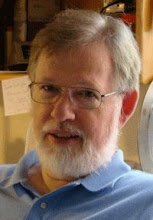The Efficiency Dilemma
David Owen, Annals of Environmentalism, “The Efficiency Dilemma,” The New Yorker, December 20, 2010, p. 78
Read first few paragraphs here.
David Owen describes Jevons’ paradox and its modern generalization due to Khazzoom and Brookes. He ventilates the disagreement between mainstream and ecological economists about the validity and applicability of the paradox.
In Jevons’ concise nineteenth century summarization the “paradox” is that
“It is wholly a confusion of ideas to suppose that the economical use of fuel is equivalent to a diminished consumption. The very contrary is the truth.”
The appearance of this article in the New Yorker is useful, given the widespread ignorance of Jevons’ paradox among activists for sustainability. Owen gives full time to the deprecation of the paradox by mainstream economists, but quotes extremely pointed commentary by ecological economists on the massive evidence that the paradox is in fact responsible for most of the structure of the current global economy.
Owen also refers to the further generalization by some ecological economists to the effect that improved economic productivity of any good will lead to increased total consumption of the good.
These efficiency theorems are widely ignored by activists and visionaries who like to think of efficiency as a royal road to sustainability. For them, it has the great advantage of being uncontroversial, of wrong footing their opponents. Who can reasonably oppose efficient use of the world’s precious resources?
But increasing the efficiency of any good increases its economic productivity, and therefore increases its total consumption. The pursuit of efficiency to help the environment is, therefore, entirely counterproductive unless it is accompanied by the pursuit of independent limits on total consumption. Unfortunately, such limits are extremely controversial, and cannot be advocated without having also to oppose the ethos of all modern polities: that economic growth is indispensable.
